Acta Materialia Hollomon Materials & Society
The deadline for nominations for all Acta Materialia and Acta Biomateriala awards is February 1st each year. For the Acta Materialia Silver medal and the Acta Biomaterialia Silver medal, the nominees must be 45 years or younger on December 31 the previous year.
The Acta Materialia, Inc. Hollomon Award for Materials & Society recognizes demonstrated leadership in promoting the understanding of the relations and the interactions between materials technology and societal interests/needs or contributions to materials technology that have had major impact on society.
With this distinction Acta Materialia, Inc. not only intends to honor outstanding persons but also to improve the awareness of the fundamental importance and diversity of materials research, both within the community and the public at large.
The Hollomon Award for Materials & Society consists of a medal, an inscribed certificate, and a cash prize of US$10,000.
Candidates for this award may be proposed by any scientist/engineer/practitioner or any materials related society, previous Acta award recipients, Sponsoring or Cooperating Societies of Acta Materialia, Inc., and Editors of the Acta Materialia journals and Society Lecturer will be an automatic nominee.
The nomination package should contain
- Curriculum vitae
- Statement by the nominator specifying the candidate’s suitability for the award**
- Letters of support from up to three established scientists
- Citation of not more than 30 words
**Please emphasize the nominee’s impact on their research field, rather than the metrics on their publications.
Nominations remain in effect for three years unless withdrawn or re-endorsed, with additional justification, for an additional two-year period. Current members of the Acta Materialia Board of Governors and of the Award Selection Committee are not eligible.
The Award Selection Committee is formed of five judges, themselves distinguished materials scientists.
The Acta Materialia, Inc. Hollomon Award for Materials & Society is awarded each year, unless the judges feel no candidate is qualified. The presentation is made at a venue approved by the Acta Materialia Executive Committee. The Award will not be bestowed in absentia except in extraordinary circumstances.
Nominations should be submitted to the Executive Secretary (Prof. Carolyn Hansson, [email protected]), as a single file document preferably in PDF or Word format.
Acta Materialia, Inc.
Acta Materialia, Inc. (http://www.actamaterialia.org) is a non-profit organization representing 36 professional societies worldwide. It is dedicated to disseminating the knowledge of science and engineering of materials, primarily by publishing high quality journals covering all aspects of the multidisciplinary field of materials science and engineering, including biomaterials, nanomaterials, materials chemistry and physics. The corporation publishes four journals in collaboration with Elsevier: Acta Materialia, Scripta Materialia, Acta Biomaterialia, and Materialia.
Recipients of Acta Materialia Materials & Society Award (formerly the Hollomon Award), currently the Acta Materialia, Inc. Hollomon Award for Materials and Society
Acta Materialia Hollomon Materials & Society Award Recipients
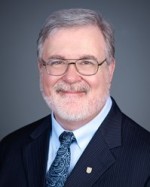
Richard Spontak
The recipient of the 2025 Acta Materialia Inc. Hollomon Award for Materials and Society is Dr. Richard J. Spontak, Distinguished Professor of Chemical & Biomolecular Engineering and Professor of Materials Science & Engineering at North Carolina State University in Raleigh, NC.
Dr. Spontak received his B.S. from the Pennsylvania State University in 1983 and his Ph.D. from the University of California at Berkeley in 1988. Since then, he pursued post-doctoral research the University of Cambridge and the Institute for Energy Technology (Norway) before joining the Corporate Research Division of The Procter & Gamble Company in 1990. In 1992, he accepted a faculty position at North Carolina State University, where he supervises the Macromolecular Materials and Morphology Group. During this time, he has served as a visiting professor at universities around the globe and received the Alexander von Humboldt Research Fellowship (Germany), the Tewkesbury Fellowship (Australia) and the Lars Onsager Professorship (Norway). He has been elected Fellow of the American Physical Society, the Royal Society of Chemistry, the Institute of Materials, Minerals and Mining (IOM3), and the PMSE Division of the American Chemical Society (ACS), he is a member of the Norwegian Academy of Technological Sciences.
Dr. Spontak’s research activities have emphasized the design and development of advanced polymers, such as functionalized thermoplastic elastomers (TPEs), which are self-networking and recyclable. He has demonstrated that physically-modified TPEs can serve as dielectric elastomers capable of giant strains under relatively low fields with electromechanical efficiencies surpassing 90%, as well as high-precision, composition-tunable shape-memory materials and stretchable conductive composites for flexible electronics. Chemical modification of TPEs yields other electroactive media such as ionic polymer-metal composites, organic photovoltaics including leaf mimics and dye-sensitized solar cells with up to 7% net efficiency, bipolar electrolyzer membranes capable of dissociating water near the thermodynamically reversible limit, and self-sterilizing antimicrobial surfaces that can inactivate most bacteria, viruses and fungi within minutes upon hydration. In recognition of these research achievements, he was awarded the Alexander Q. Holladay Medal for Excellence, the R.J. Reynolds Award for Excellence in Teaching, Research and Extension, the Alcoa Distinguished Engineering Research Award, and the Alumni Association Outstanding Research Award at North Carolina State University. Moreover, he received the ACS Rubber Division Chemistry of Thermoplastic Elastomers Award, the ACS PMSE Division Cooperative Research Award in Polymer Science & Engineering, the IOM3 Colwyn Medal, and the Society of Polymer Science (Japan) International Award.
Dr. Spontak’s other significant research addresses the development of polymer membranes intended for carbon (CO2) capture to help mitigate global climate change. With his international colleagues, he discovered that the chemically-functionalized TPEs mentioned above could be used to selectively remove CO2 from mixed-gas streams. They also nanofabricated unique “hybrid-integrated” (HI) membranes that combine two different molecular transport mechanisms by chemically functionalizing the surface of existing high-permeability membranes with surface-synthesized amine-containing polymer chains, thereby yielding an unprecedented and record-setting CO2-separation performance level. In recognition of this achievement, he has received the IOM3 Medal for Excellence, the Institution of Chemical Engineers Underwood Medal and Global Award, and the ACS PMSE Division Roy W. Tess Award in Coatings, as well as an honorary doctorate from the Norwegian University of Science & Technology.
His other research activities are aimed at developing advanced materials from (nano)cellulosics, bioplastics, and nonwovens, as well as material processes to mitigate nano/microplastic generation and characterization techniques such as transmission electron microtomography. He is an award-winning teacher, receiving the University of North Carolina Board of Governors’ Award for Excellence in Teaching, and advisor, receiving the McDonald Mentor Award from the Tau Beta Pi Engineering Honor Society. He has also shared his materials expertise with international universities as a Fulbright Senior Specialist and the U.S. State Department as a Jefferson Science Fellow.
Dr. Spontak will receive the Acta Materialia Hollomon Award at the TMS Annual Meeting in Las Vegas in March 2025.
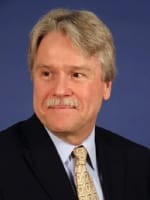
Iver E. Anderson
The recipient of the 2024 Acta Materialia Inc. Hollomon Award for Materials and Society is Dr. Iver E. Anderson, Senior metallurgist in the Division of Materials Sciences and Engineering at Ames National Laboratory and Adjunct Professor of the Department of Materials Science and Engineering at Iowa State University.
Dr. Anderson earned his B.S. in Metallurgical Engineering from Michigan Technological University and his M.S. and Ph.D. in Metallurgical Engineering from the University of Wisconsin-Madison. From 1982 to 1987 he was a Staff Metallurgist in the Materials Science and Technology Division at the U.S. Naval Research Laboratory and joined Ames Laboratory in 1987.
Within his research, Dr. Anderson is focused on powder metallurgy, rapid solidification, and alloy design, especially for joining, including lead-free solders and ceramic composite bonding. His processing research includes high pressure gas atomization of precision metal powders and centrifugal atomization/fluid quenching of spherical powders of rare-earth (RE) metals/compounds and other highly reactive metals and alloys. He and his students and colleagues were co-inventors of a widely adopted and environmentally friendly Pb-free solder for electronic joining.
Dr. Anderson’s more recent scientific interests include several other topics related to renewable and carbon-free electric power generation and transmission. He and his students and colleagues have invented and developed a metal-metal (Al/Ca) composite conductor for high voltage overhead cable for transmission lines to connect renewable power generation sites to industry and population centers. They also invented and developed a direct gas atomization reaction synthesis method for a precursor alloy powder that is consolidated and heat treated into oxide dispersion strengthened ferritic steel for radiation tolerant applications in nuclear fission and fusion power plants. His work has also included powder processing of permanent magnet alloys, both with rare earths and RE-free, particularly to ease the demand for critical materials in hybrid and electric vehicles.
Dr. Anderson is a Fellow of ASM International (1994) and former ASM Trustee; a Fellow (2006) and former Directors of the APMI; a Fellow (2015) and former Director of TMS; a Fellow of Alpha Sigma Mu (2014) and National Academy of Inventors (2015) and a Member of the National Inventors Hall of Fame (2017). In 2019, Dr. Anderson was named a Distinguished Alumnus of Michigan Technological University. He also received other awards in-cluding the 2001 Energy 100 Award; 1996 TMS Distinguished Ser-vice Award; 1991 R&D-100 Award; and the 1991 Federal Laboratory Consortium Award for Excellence in Technology Transfer. Recently, Dr. Anderson delivered the 2022 TMS/ASM Joint Distinguished Lecture on Materials and Society at the Materials Science and Technology meeting in Pittsburgh, Pennsylvania.
Dr. Anderson will receive the Acta Materialia Hollomon Award for Materials and Society during the TMS 2024 Annual Meeting to be held in Orlando, FL, in March 2024.
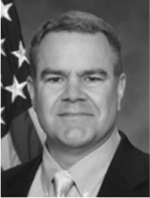
Charles Ward
Dr. Charles H. Ward is the 2023 recipient of the Acta Materialia Hol-lomon Award for Materials and Society.
Dr. Ward received his B.S. in Metallurgical Engineering and Mate-rials Science, and his M.S. and Ph.D. degrees in Materials Science andEngineering from Carnegie Mellon University. His professional careerhas spanned 36 years, serving in several roles in research, engineering,and technology leadership. After 20 years of service as an active-dutyAir Force Officer, he spent the last 16 years as a civilian in the Materi-als and Manufacturing Directorate of the Air Force Research Laboratory(AFRL).
Dr. Ward’s personal research focused on the microstructure-propertyrelationships in titanium and titanium aluminide alloys. While leadingthe basic research program in metals at the Air Force Office of Scien-tific Research from 1993 to 1997, he initiated efforts in understandinghigh cycle fatigue failure of titanium alloys, damage mechanisms in ti-tanium aluminides, as well as research in refractory and bulk metallicglass alloys. Afterwards, he served as lead engineer for the F-35 propul-sion program, staff officer to the Assistant Secretary of the Air Force forAcquisition, and Air Force liaison for materials research and develop-ment in Europe.
In 2006 he became Chief of AFRL’s Metals, Ceramics and Nondestruc-tive Evaluation Division. Here he started initiatives in materials devel-opment for extreme environments, supporting both future hypersonicflight as well as advanced jet engine applications. He also spearheadedAFRL’s new effort in Integrated Computational Materials Science andEngineering (ICMSE), which sought to accelerate research within thefield of materials science and engineering. While in this role, he was in-strumental in helping build the U.S. Materials Genome Initiative (MGI),which was announced by President Obama in 2011. MGI seeks to halvethe time needed to discover, develop, and deploy materials and do so ata fraction of the cost. In 2012, Dr. Ward became AFRL’s Lead for ICMSE,and subsequently Co-Chair of the MGI Subcommittee under the Officeof Science and Technology Policy. In these roles, he focused on devel-oping the policies and infrastructure necessary to develop a materialsdata infrastructure, which is critical to supporting the concept of openscience while also enabling the use of new technologies such as artificialintelligence to advance the field of materials science and engineering.Also in 2012, he became the founding Editor-in-Chief of Integrating Ma-terials and Manufacturing Innovation (IMMI). IMMI was established byThe Minerals, Metals, and Materials Society (TMS) as a peer- reviewedjournal featuring the products of MGI-related research.
In 2017, Dr. Ward assumed the role of Chief of AFRL’s Manufactur-ing and Industrial Technologies Division. Here he led the Air Force’s$178 million annual investment in Manufacturing Technology, whichaims to increase producibility and reduce manufacturing cost and riskfor technology insertion into Air Force weapon systems. In this role,he established the first in-house research effort within the Departmentof Defense focused on bringing the fields of materials and manufactur-ing together to advance the state-of-the-art in digital manufacturing. Healso provided execution oversight of $2.4 billion in the Defense Pro-duction Act Title Ill program, which establishes, modernizes, and main-tains critical industrial capabilities for the U.S. From 2021 to 2022 Dr.Ward served as Acting Director of AFRL’s Materials and Manufactur-ing Directorate. In this role, he led the Department of the Air Force’sscience and technology programs in functional materials, structural ma-terials, manufacturing technology, and systems support for advanced,next-generation space, missile, and aircraft applications. The Materialsand Manufacturing Directorate consists of a workforce of more than 900people with an annual budget in excess of $900 million.
Dr. Ward will receive the Acta Materialia Hollomon Award for Ma-terials and Society during the TMS Annual Meeting in San Diego, CA,March 19 -23, 2023.

Alexander Michaelis
The recipient of the 2022 Acta Materialia Hollomon Award for Materials and Society is Professor Dr. Alexander Michaelis, president of Fraunhofer Institute for Ceramic Technologies and Systems IKTS, Dresden, and Full Professor for Ceramics at Technical University of Dresden in Germany.
Professor Michaelis studied physics at the University of Diisseldorf, Germany where he earned his Ph.D. and state doctorate (habil) in materials science and electrochemistry. In 1995 he became faculty member at the University of North Carolina at Chapel Hill, USA working on high temperature superconductors YBCO. In 1996 he switched to Siemens Inc. working as senior process integration engineer in the field of microelectronics in East Fishkill, New York. In 2000, he started to work for the corporate research department of the chemical company Bayer AG in Leverkusen, Germany and the Bayer subsidiary H.C. Starck GmbH, heading the New Business Development department. At that time, he also was appointed as the managing director of the Dutch fuel cell company InDEC BV.
Since 2004, Professor Michaelis is president of Fraunhofer IKTS with more than 800 employees and a yearly budget of over 77 Mio €. Additionally, he is full professor for Ceramics at TU Dresden and has received numerous awards. He is an academician of the “World Academy of Ceramics WAC”, Fellow of the American Ceramic Society (ACerS) and the European Ceramic Society (ECerS). Since 2019 he is also the president of the German Ceramic Society (DKG e.V.) and the FDKG e.V. (Research organization of DKG).
His research covers the entire field of technical ceramics including structural and functional ceramic materials and components. Currently he focuses on battery and fuel cell development (conventional and solid-state Li-lon batteries, NaNiCl high temperature batteries, solid oxide fuel cells). In the reverse mode SOFC fuel cells can be used for production of green hydrogen. These so called solid oxide electrolysis systems offer an up to 30% higher efficiency in power to hydrogen conversion than competing technologies such as alkaline or PEM electrolysis. Furthermore, SOE is co-electrolysis capable i.e., a direct production of syngas (CO and H;) using environmental CO, is possible making SOE even CO, negative. Therefore, SOE technology is ideally suitable for PtX and closed cycle applications.
Professor Michaelis will receive the Acta Materialia Hollomon Award for Materials and Society during the 2022 TMS Spring Meeting to be held in Anaheim, California, February 27 — March 3, 2022.

Qingjie Zhang
The recipient of the 2021 Acta Materialia Hollomon Award for Materials and Society is Professor Qingjie Zhang of the State Key Laboratory of Advanced Technology for Materials Synthesis and Processing in the Wuhan University of Technology (WUT) at Wuhan, Hubei Province, China. He is also a Scientist in Materials Science and a Member of the Chinese Academy of Sciences.
Prof. Zhang received his Ph.D. degree in Mechanics of Materials and Structures from Huazhong University of Science and Technology in 1990. He was engaged in post-doctoral research in Materials Science at in the State Key Lab from 1991 to1992. At present, he is Professor and President of WUT.
His research activities have focused on the development and application in the areas of new energy materials and devices, advanced composite materials and structures, material micro-nano computation and new materials design, to name a few. In the last 20 years, Prof. Zhang received three National Awards for technological invention and scientific discovery including two National Technological Invention Awards and a National Natural Science Award. In 2017, Prof. Zhang received the American Ceramic Society Award for Frontier of Science and Technology-Rustum Roy Lecture.
Prof. Zhang has been appointed successively as Chief Scientist of the National Basic Research Program of China (2007-2017) of High-efficiency Thermoelectric Materials and Devices, Director of the State Key Laboratory (2004-2017), Member of 1st National Basic Research Strategy Advisory Committee of Ministry of Science and Technology (2020-), Head of the Expert Group of Materials for the Strategy Planning Research for State Key Laboratories Facing to 2035 of Ministry of Science and Technology, Head of Expert Group of Materials for the Strategy Planning Research on Interdisciplinary Frontiers and Disruptive Innovation Facing to 2035 of Ministry of Science and Technology, Member of Expert Group of Guideline drafting for National Key Research Program on Key Sciences Problems on Disruptive Technologies (2017-), Head of Expert Group of Major Research Project on High-performance Materials with Ordered Functional Unit of National Natural Science Foundation of China (2019-).
Prof. Zhang was selected as the 2021 awardee by an international panel of judges appointed by the Board of Governors of Acta Materialia, Inc., and will receive this prestigious award in March 2021 during the TMS Annual Meeting in Orlando, Florida.
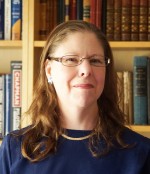
Lynnette D. Madsen
The recipient of the 2020 Acta Materialia Inc. Hollomon Award for Materials & Society is Dr. Lynnette D. Madsen of the U.S. National Science Foundation (NSF) located in Virginia. Dr. Madsen has served as Program Director at the National NSF for nearly two decades. In addition to selecting the best science to support, Dr. Madsen has elevated this role by guiding the community in terms of research directions, educating students, and reaching the public. She has fostered new partnerships, cross-cutting research, and diversity and innovation resulting in broad engagement. A hallmark of her leadership style is translating discoveries into technologies. Her primary jurisdiction is ceramics, composites, and inorganic glasses. Additional areas of expertise and responsibility include sustainability, clean energy, nanotechnology, manufacturing, diversity, education, and forging new cooperative (international and interagency) efforts.
No doubt her multidisciplinary, international, and multi sector background lays the foundation for this excellence. Dr. Madsen was awarded degrees in four fields: a B.A.Sc. in Electrical Engineering and a B.A. in Psychology from the University of Waterloo, an M.Eng. in Electronics from Carleton University, and a Ph.D. in Materials Science from McMaster University. Her accomplishments have been recognized with a Professional Achievement Alumna Medal from the Faculty of Engineering at the University of Waterloo (in 2013) and an Alumni Gallery Award from McMaster University (in 2018). Dr. Madsen has worked in Canada, Sweden and the United States and she has experience in industry, academia, and government. From 1999-2002, she held a visiting/adjunct faculty position at Carnegie Mellon University. Previously, she held a faculty position at Linköping University in Sweden where she was promoted to Docent (Associate Professor), and earlier she held post-doctoral positions at both Linköping University and the University of Illinois at Urbana-Champaign. The first decade of her career was spent in industry at Nortel Networks in Canada.
Throughout her tenure at NSF, Dr. Madsen has maintained an active independent research program. Her research includes epitaxial and pseudomorphic thin films, combinatorial nanomaterials science applied to magnetic recording media, contact formation to silicon carbide, and nanoscale graphite intercalation compounds. Additionally, she has two published books, Materials Research for Manufacturing: An Industrial Perspective of Turning Materials into New Products (Springer) and Successful Women Ceramic and Glass Scientists and Engineers: 100 Inspirational Profiles (Wiley).
Dr. Madsen is a Fellow of American Association for the Advancement of Science (AAAS), The American Ceramic Society (ACerS), the American Vacuum Society (AVS) and the Washington Academy of Sciences (WAS), and is a Senior Member of the Institute of Electrical and Electronics Engineers (IEEE). NSF has recognized her efforts with two Director Awards, more than a dozen Performance Awards and an Incentive Award for Timely Program Management. Additionally, her accomplishments have been recognized by international organizations: the Accreditation Board for Engineering and Technology (ABET), ACerS, ASM International, AVS, the Materials Research Society (MRS), the Minerals, Metals & Materials Society (TMS), the Women in Engineering ProActive Network (WEPAN), and by national and local organizations: the District of Columbia Council of Engineering and Architectural Societies (DCCEAS), the Society of Hispanic Professional Engineers (SHPE), WAS, and Women in Technology (WIT).
Currently, Dr. Madsen serves on the Advisory Board for the Rosalind Franklin Society, on the Board of Directors for ACerS, and on the Editorial Board for Materials Today. Previously, she served as a panelist for the National Research Council at the National Academies, as a Trustee for AVS, and as Board Secretary for WAS.
The Acta Materialia, Inc. Hollomon Award in Materials and Society was established in memory of Dr. J. Herbert Hollomon and his dedication to promoting positive social consequences of science and technology that have had a major impact on society. The Award consists of a Steuben glass sculpture, an inscribed certificate, and a cash honorarium.
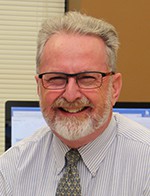
Alexander H. King
The 2019 recipient of the Acta Materialia Hollomon Award for Materials and Society is Dr. Alexander H. King, Professor of Materials Science and Engineering at Iowa State University. Dr. King will receive his award during the 2019 TMS Spring Meeting and Exhibition in San Antonio, Texas.
Dr. King recently completed a five-year term as the founder and Director of the US Department of Energy’s Critical Materials Institute – one of DOE’s four Energy Innovation Hubs. He is also a former Director of DOE’s Ames Laboratory, in Ames, Iowa. The Critical Materials Institute is a consortium of four DOE national labs, seven universities and a dozen corporations, and is considered to be a model of collaboration and productivity. It is one of four Energy Innovation Hubs formed to accelerate scientific discovery of critical energy technologies.
Dr. King was born and raised in London. He was an undergraduate at the University of Sheffield and earned his doctorate from Oxford. He was a post doctoral fellow at Oxford and then the Massachusetts Institute of Technology before joining the faculty at the State University of New York at Stony Brook, where he also served as the Vice Provost for Graduate Studies (Dean of the Graduate School). He was the Head of the School of Materials Engineering at Purdue in from 1999 to 2007, the Director of DOE’s Ames Laboratory from 2008 until 2013, and became the Founding Director of the Critical Materials Institute when the Ames Lab was awarded its funding.
Dr. King is a Fellow of the Institute of Mining Minerals and Materials; ASM International; and the Materials Research Society. He was also a Visiting Fellow of the Japan Society for the Promotion of Science in 1996 and a US Department of State Jefferson Science Fellow for 2005-06.
He served as the President of MRS for 2002, Chair of the University Materials Council of North America for 2006-07, Co-chair of the Gordon Conference on Physical Metallurgy for 2006, and Chair of the APS Interest Group on Energy Research and Applications for 2010.
In 2013, Dr.King delivered a TEDx talk on critical materials and was the TMS & ASM Distinguished Lecturer on Materials and Society in 2017. He maintains research interests in the atomic-scale behavior of grain boundaries, but most of his recent work has focused on understanding the dynamics of materials supply-chain failures and implementing effective strategies to avoid or alleviate them.
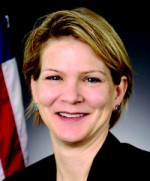
Julie Christodoulou
The recipient of the 2018 Acta Materialia Inc. Hollomon Award for Materials and Society is Dr. Julie Christodoulou, Director of the Naval Materials Division in the Sea Warfare and Weapons Department of the Office of Naval Research (ONR) in Arlington, Virginia.
Her role is to drive foundational research in the physical sciences, materials and processing, and environmental quality; and enhanced performance, affordability and reliability derived from this research to the men and women on the “Watch”. Specifically, Dr. Christodoulou guides materials research and development from the atomic and molecular level to engineered materials systems and platforms; technologies to ensure environmental quality; and early device concepts for power and energy applications. A unifying theme to the body of work is the development and integration of computational and experimental tools and the protocols to quantify chemical and physical phenomena, accelerate materials implementation, and predict component-level performance.
Complementing this, she is active in national and international initiatives, including the Materials Genome Initiative for Global Competitiveness, serving on the National Science and Technology Council Subcommittee; and the Advanced Manufacturing Partnership, by establishing and guiding one of the National Network of Manufacturing Institutes focused on metals for reduced system weight. Dr. Christodoulou is a leader of the Department of Defense-wide Community of Interest for Materials and Manufacturing Processes and the US lead to the Materials Group of The Technical Collaboration Program, an international collaborative body for defense research and engineering programs.
Dr. Christodoulou holds a BS in metallurgical engineering from the University of Texas at El Paso, an MS in materials science and engineering from the Johns Hopkins University, and a doctorate in materials science at Imperial College, London. Prior to her current position, she has served as a Materials Researcher for Martin Marietta Laboratories and the Naval Research Lab, focusing on the processing-structure-performance relationships of intermetallics and piezoelectric ceramics, and environmental degradation of structural materials, respectively. She has served as an Associate Director for high-temperature materials at the London International Field office of ONR (now ONR Global) and as an ONR Program Officer for structural metals. Active in the technical community, she has been recognized with the 2013 Leadership Award by TMS, is an ASM Fellow, and has been honored to present the Materials and Society plenary lecture at MS&T 2016. She is a recipient of the Presidential Rank Award for Meritorious Service (2015). The Acta Materialia Hollomon Award will be presented In February 2018 at the TMS Annual Meeting in Phoenix, Arizona.
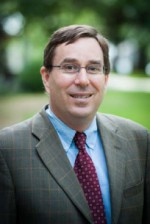
Warren Poole
Dr. Warren Poole, Professor and Department Head, and Rio Tinto Aluminium Chair in Materials Process Engineering at the University of British Columbia in Canada is the recipient of the 2017 Acta Materialia Hollomon Award for Materials & Society. Dr. Poole’s research into the properties of lightweight metals has led him to create safe, mass-producible alloy automobile parts that could reduce fuel use and greenhouse gases emitted by vehicles in Canada by 40 percent by 2025. He holds a leading position in the field of Integrated Computational Materials Engineering (ICME), is a member of multiple international conference committees and advisory boards, has facilitated industry-academy partnerships in North America, the United Kingdom and Europe, and continues to teach, advise, and develop curricula for both undergraduates and graduate students.
Dr. Poole and his team have created breakthrough automotive lightweighting opportunities by developing a process to warm form complex vehicle components from the magnesium ZEK100 alloy. Since 1995, he has been one of lightweighting’s most avid proponents around the world. He has presented at close to 60 conferences, won 15 awards including the 2013 Canadian Materials Physics Award and best paper published by the Japan Institute of Metals and Materials publication Materials Transactions in 2014, and been instrumental in research endeavours with a total funding of close to $27 million. Twenty-five percent of the world’s greenhouse gas (GHG) emissions derive from automobiles, and they are the world’s sixth-leading cause of death. Public transit, car sharing, and alternative fuels are only part of the GHG and safety solutions. Their necessary counterpart is the reduction of overall vehicle weight. Every 10 percent weight reduction yields a six-to-eight percent increase in fuel economy. Because magnesium is 80 percent less dense than traditional steel, breakthroughs in both materials and methods of manufacture could reduce a vehicle’s weight by up to 60 percent, making traditional petroleum-burning vehicles vastly more efficient and rendering alternative fuels more effective and commercially viable.
Born in 1964 in London, Ontario, Canada, Warren James Poole spent his teenage years obsessed with cars. But he never imagined they would figure in his career. He earned his BSc from the University of Western Ontario (1987), worked as a research engineer at Dofasco Inc. for two years and then obtained his PhD from McMaster University (1993); both degrees were in Materials Engineering. In 1995, just a year into Dr. Poole’s Assistant Professorship with UBC Applied Science, Alcan International invited him to work on the development of “6000” series aluminum alloys for automotive applications.
The venture was an early signal of his success in strengthening partnership and knowledge-sharing between the academy and industry. Whether by transferring process model software to relevant companies or collaborating with automotive R&D specialists across North America, Dr. Poole has made it a priority to strengthen the academyindustry relationship and to ensure that the benefits of his team’s work reach the public. Since then, Dr. Poole has focused on the primary metals of automotive construction— steel, aluminum, and magnesium—with the aim of increasing our understanding of the microstructural properties of metal alloys in response to thermal processing, including precipitation hardening, plasticity and deformation, heterogeneous microstructures, and the microstructures of advanced steels in automobiles. His research involved experiments at the Los Alamos Neutron Scattering Center and Canadian Centre for Neutron Scattering in Chalk River, and earned him a Killam Research Fellowship in 2005.
In 2006, Dr. Poole turned his attention to magnesium, the lowest-density structural metal and yet the least understood. General Motors approached him, keen to know magnesium’s viability for automotive construction. Concurrently, the Natural Sciences and Engineering Research Council of Canada (NSERC) was reinvigorating its strategic research program. Under the name MagNET—Magnesium Research Network—Dr. Poole’s international team garnered over $6 million in funding as well as the support of GM and Magna International (one of North America’s largest supplier of parts and components to the automotive sector). Between 2009 and 2014, six industrial partners and 18 researchers at five universities worked under Dr. Poole’s leadership to define the material properties of magnesium from the atomic level to the fabrication of a full-scale door inner to determine the viability of lightweight magnesium and Mg-alloy replacements for steel in personal automobiles.
In the face of considerable professional skepticism—he was told it could not be done— Dr. Poole and his team produced a door inner from a magnesium alloy sheet in under 10 seconds at temperatures below 250 o C, using a process that was reproducible and commercially viable. In 2013, MagNET and its industry partners announced the production of the commercial prototype door inner using a warm forming technology. The project earned the 2014 International Magnesium Association’s Award of Excellence (Process Division). Now, Dr. Poole’s vision for a “digital factory” could raise the quality and safety of these materials, increase productivity, and reduce costs—this field’s greatest challenges—so that large-scale production is efficient and the end product affordable.
Over the past 20 years, Dr. Poole has inspired over 750 undergraduate and more than 35 graduate students to work on problems that matter to the world. They are now researchers with ArcelorMittal, Novelis, and Tesla; agents for the Department of National Defense and Natural Resources Canada; and academics at École des Mines, Paris, the University of Grenoble, and the University of Waterloo. He continues to teach and to create new courses for the greatest knowledge mobilization force of all: his students. The Acta Materialia, Inc. Hollomon Award in Materials & Society was established in memory of Dr. J. Herbert Hollomon and his dedication to promoting positive social consequences of science and technology that have had a major impact on society. The Award consists of a glass sculpture, an inscribed certificate and a cash honorarium.
Dr. Poole was selected as the 2017 awardee by an international panel of judges appointed by the Board of Governors of Acta Materialia, Inc. and will receive the prestigious award in March 2017 during the TMS Annual Meeting in San Diego, CA.
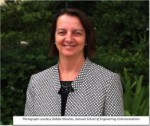
Julia Schoenung
The recipient of the 2016 Acta Materialia Inc. Hollomon Award for Materials & Society is Dr. Julie Schoenung of the Department of Chemical Engineering and Materials Science at the University of California at Irvine. Dr. Schoenung received her B.S, in Ceramic Engineering from the University of Illinois and her M.S. and Ph.D. degrees in Materials Engineering from MIT. Since then she has been in California, first at California State Polytechnic University, 1989-2001 and then, after a year at the University of California at Irvine, she moved to the UC Davis campus until 2015, when she moved back to UC Irvine.
Dr. Schoenung’s research activities have emphasized advanced structural materials and green engineering. In the former field, she and her students have developed the cryomilling process to improve the oxidation behavior of thermal barrier coatings, and to produce boron carbide reinforced aluminum nanocomposites with extremely high strength and tolerance to high strain rate deformation. More recently, this group has produced room temperature plasticity in dense, nano-grained ceramics created by high pressure spark plasma sintering. Dr. Schoenung’s other significant activities have been in “green engineering” – to develop processes that use less-toxic chemicals, require less energy and produce less pollution. She and her colleagues have helped define opportunities for product designers, materials scientists, and manufacturers to use alternative assessment methods and materials life cycle analysis for “sustainable design-forthe environment strategies”. She has focused particularly on the electronic-waste problem, for example by studying environmentally designed electronics and pollution prevention in printed wiring board manufacturing. Dr. Schoenung serves on the Green Ribbon Science Panel of the California Environmental Protection Agency for Toxic Substance Control and is an advisor to the Alternative Materials Assessment Project. She is a member of the “Environmentally Conscious Electronics Roadmap Development Team” of the International Electronics Manufacturing Initiative and a member of the ”Chemical Hazard Assessment Workgroup” and the “Sustainable Materials Workgroup, both of Biz NGO. Dr. Schoenung is a Fellow of ASM and of the Max Planck Institute and the recipient of several awards, including the Chime Bell Award from the Hubel Province, China.
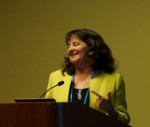
Tresa Pollack
The recipient of the 2015 Acta Materialia Inc. Hollomon Materials & Society Award is Dr. Tresa M. Pollock, the Alcoa Professor of Materials at the University of California Santa Barbara. Dr. Pollock specializes in the mechanical and environmental performance of materials in extreme environments, unique high temperature materials processing paths, ultrafast laser-material interactions, alloy and coating design and 3-D materials science for prediction of the properties of structural and functional materials. She has been a member of the National Academy of Engineering (NAE) since 2005 and has served in a number of leadership positions in professional societies, government and academia.
Dr. Pollock, whose career has spanned from industry to academia, was employed at General Electric Aviation and Allison Gas Turbine (now Rolls Royce) during the 1980’s, involved in research and development on high temperature alloys and coatings. She was a co-inventor of the GE single crystal turbine airfoil alloy, René N6. Pollock served as the L.H. and F.E. Van Vlack Professor of Materials at the University of Michigan Ann Arbor from 2000 – 2009 and the Alcoa Professor of Materials Science and Engineering at Carnegie Mellon University, where she progressed from Assistant to Associate to Full Professor from 1991 – 1999. Born in Springfield, Ohio, Dr. Pollock received an undergraduate degree from Purdue University in 1984 and a Ph.D. in Materials Science and Engineering from the Massachusetts Institute of Technology in 1989.
With over 250 peer reviewed scientific publications, her recent research has focused on thermal barrier coating systems, a new class of intermetallic-containing high temperature cobalt-base alloys, materials for hypersonic flight, lightweight materials and structures, new growth processes for nickel- and cobalt-base alloy single crystals and femtosecond laser – material interactions. Her research group has recently developed a unique femtosecond laser-aided 3-D tomography technique which uses ultrashort laser pulses to ablate material layer-by-layer, permitting acquisition of mesoscale 3D multimodal datasets with nanometerscale resolution and unprecedented speed. Dr. Pollock has served on the advisory committees for the Engineering Directorate of the National Science Foundation and the Los Alamos Institutes. She is also the recipient of the 2014 ASM Gold Medal and is a Fellow of TMS and ASM.
Professor Pollock chaired the 2008 NAE Study on Integrated Computational Engineering (ICME), which significantly contributed to the development of the White House Materials Genome Initiative and the development of a broad set of US Federal research programs that aim to develop computational, experimental and data/informatics tools that permit new materials to be developed twice as fast at a fraction of the cost, compared to what is currently possible. She delivered the Keynote Lecture at the 1st World Congress on International Computational Materials Engineering (2011) and served on the International Advisory Committee for the 2nd World Congress (2013). She was also co-organizer of the Materials Genome Grand Challenges Summit (2013) and the 2nd International Congress on 3D Materials Science (2014Professor Pollock has provided leadership in the development of early career professionals in Materials Science and on improving diversity in the engineering profession. As Vice President and President of the Minerals, Metals and Materials Society (2004 – 2005), she developed new programs for early career professionals and junior faculty in Materials. The NSF International Center for Materials Research (ICMR), directed by Pollock since 2010, provides support for students, postdoctoral researchers and junior faculty to engage in international research exchanges and to develop international collaborations through workshops and summer schools. From 2006 – 2009 she served as lead organizer of the NAE US – German Frontiers of Engineering meetings, that bring together emerging academic, industrial and government engineering leaders from each country for exchanges of leading-edge engineering research and to facilitate international collaborations. Dr. Pollock also served on the Advisory Board and was an active participant in the NSF-Advance program at the University of Michigan (2001 – 2006), which developed programs and initiatives on recruiting, retention and leadership for women faculty in science and engineering. Most recently she served as an advisory organizer of the 2014 TMS Summit on Diversity in the Minerals, Metals and Materials Professions, held at the National Academy of Science.
The Acta Materialia, Inc. Hollomon Award in Materials and Society was established in memory of Dr. J. Herbert Hollomon and his dedication to promoting positive social consequences of science and technology that have had a major impact on society. The Award consists of a glass sculpture, an inscribed certificate and a cash honorarium.
Dr. Pollock was selected as the 2015 awardee by an international panel of judges appointed by the Board of Governors of Acta Materialia, Inc. and will receive this prestigious award in March 2015 during the TMS Annual meeting in Orlando, FL.
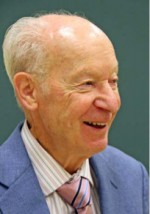
Karl A. Gschneidner, Jr.
The winner of the 2014 Acta Materialia Hollomon Materials & Society Award is Anson Marston Distinguished Professor Karl A. Gschneidner, Jr., of the Department of Materials Science and Engineering, Iowa State University. He is also a Senior Metallurgist at the Department of Energy’s (DOE) Ames Laboratory and Chief Scientist of DOE’s newest Energy Innovation Hub – the Critical Materials Institute. Karl has been working on rare earths since his graduate student days when he started working with his mentor Distinguished Professor Frank H. Spedding, known as the “father of rare earths,” and Dr. Adrian H. Daane in 1952 when he started preparing high purity rare earth metals and studied the rare earth carbides. After graduation from Iowa State University he joined the plutonium physical metallurgy group at the Los Alamost National Laboratory, and, in addition to working on delta-stabilized plutonium (δ-Pu) alloys, he studied the temperature-pressure phase diagram of cerium.
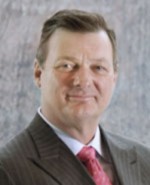
Jeffrey Wadsworth
The winner of the 2013 Acta Materialia Inc. Materials & Society Award (formerly the J. Herbert Hollomon Award) is Dr. Jeffrey Wadsworth, President and CEO of Battelle Memorial Institute since January 2009.
Battelle is the world’s largest nonprofit research and development organization, executing about $6.5B of work annually and employing about 24,500 people. Formed in 1925 as a charitable trust and headquartered in Columbus, Ohio, its principal businesses today are fee-for-service contract research, laboratory operations, and commercial ventures, executing more than 5,000 projects for some 1,500 industrial and government clients throughout the world.
Jeff formerly led Battelle’s Global Laboratory Operations business overseeing six major laboratories for the Department of Energy, one for the Department of Homeland Security, and one for the United Kingdom’s Department of Energy and Climate Change. He also led the expansion of Battelle’s operations into China, Japan, Korea, and India and the development of partnerships with the private sector in those nations.
Jeff was educated at Sheffield University in England, where he studied metallurgy, earning a bachelor’s degree in 1972 and a Ph.D. in 1975. He was awarded a Doctor of Metallurgy degree in 1991 for his published work and received the highest recognition conferred by the university, an honorary Doctor of Engineering degree, in 2004. Jeff came to the United States in 1976 and has worked at Stanford University, Lockheed Missiles and Space Company, and Lawrence Livermore National Laboratory. In 2002, he joined Battelle and served as a member of the White House Transition Planning Office for the U.S. Department of Homeland Security. From 2003 to June 2007, Jeff was director of Oak Ridge National Laboratory, the U.S. Department of Energy’s largest multipurpose science laboratory.
Jeff has authored or co-authored nearly 300 scientific papers and 1 book, and he has been granted 4 U.S. patents. His many honors and awards include five honorary doctorates, two honorary professorships from Chinese universities, and election to the rank of Fellow of ASM, TMS, and AAAS. He was elected a member of the National Academy of Engineering in 2005 and the Chinese Academy of Engineering in 2012.
He has been a consulting or adjunct professor at Stanford, the University of California, the University of Tennessee, and The Ohio State University. His technical contributions are recognized internationally in the fields of superplasticity of metals and ceramics, refractory metals, high temperature materials, Damascus and other ancient steels, carbon dating of ancient steels, and for leadership in national defense and science programs.
His recent awards include ASM International’s 2011 Medal for the Advancement of Research, the 2010 Navigator Award from the Potomac Institute for Policy Studies, the 2010 Friendship Award of the State Administration of Foreign Experts Affairs for contributions and dedication to China’s economic construction and social development, the 2009 National Materials Advancement Award from the Federation of Materials Societies, the 2009 ASM/TMS Distinguished Lectureship in Materials & Society, and the 2009 Globe and Anchor Award from the Marine Corps Scholarship Foundation.
As a board member of Achieve, Inc. and the Business Higher Education Forum, Jeff is helping to lead national efforts to enhance science, technology, engineering and math education. He is also strengthening education and the economy in Central Ohio through his engagement with a number of local civic and community organizations. In 2010 Ohio Governor Strickland asked him to become a Member of the Board of Trustees of The Ohio State University. From 2009-2010 he was the inaugural chair of the Ohio State University Medical Center Board. He is a member of the Board of Directors of the Carpenter Technology Corporation, Wyomissing, PA.
The Acta Materialia, Inc. Award in Materials and Society was established in memory of Dr. J. Herbert Hollomon and his dedication to promoting positive social consequences of science and technology that have had a major impact on society. The Award consists of a glass sculpture, an inscribed certificate, and a cash honorarium.
Dr. Wadsworth was selected as the 2013 awardee by an international panel of judges appointed by the Board of Governors of Acta Materialia, Inc. and will receive this prestigious award in March 2013 during the TMS Spring meeting in San Antonio, TX.
2012
Millie Dresselhous
U.S.A.
2011
Alan Taub
U.S.A.
2010
Marc Meyers
Brazil
U.S.A.
2007
Diran Apelian
U.S.A.
2009
Carolyn Hansson
Canada
2008
Bhakta Rath
U.S.A.
2006
Praveen Chaudhari
U.S.A.
2005
Alton D. Romig, Jr.
U.S.A.
2004
Siegfried Hecker
U.S.A.
2003
Larry Hench
U.S.A.
2002
Craig Barrett
U.S.A.
2001
Mary L. Good
U.S.A.
1998
Masato Sagawa
Japan
2000
William Bonfield
U.K.
1999
(No award made)
1997
Merton Flemings
U.S.A.
1996
Albert Westwood
U.S.A.
U.K.
1995
Morris Cohen
U.S.A.
1994
Robert Fullman
U.S.A.
1993
Frederick Seitz
U.S.A.
1992
Robert Jaffee
U.S.A.
1991
Alan Cottrell
U.K.
1990
Cyril Smith
U.S.A.